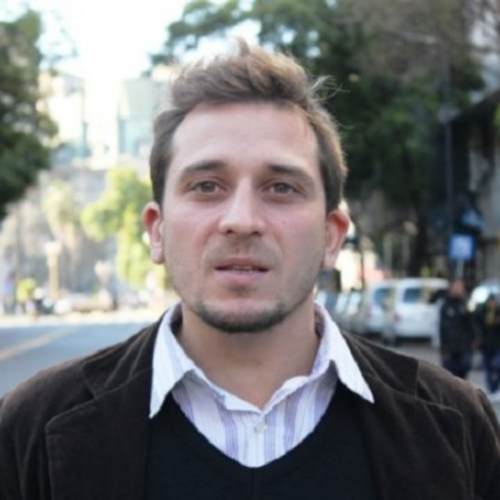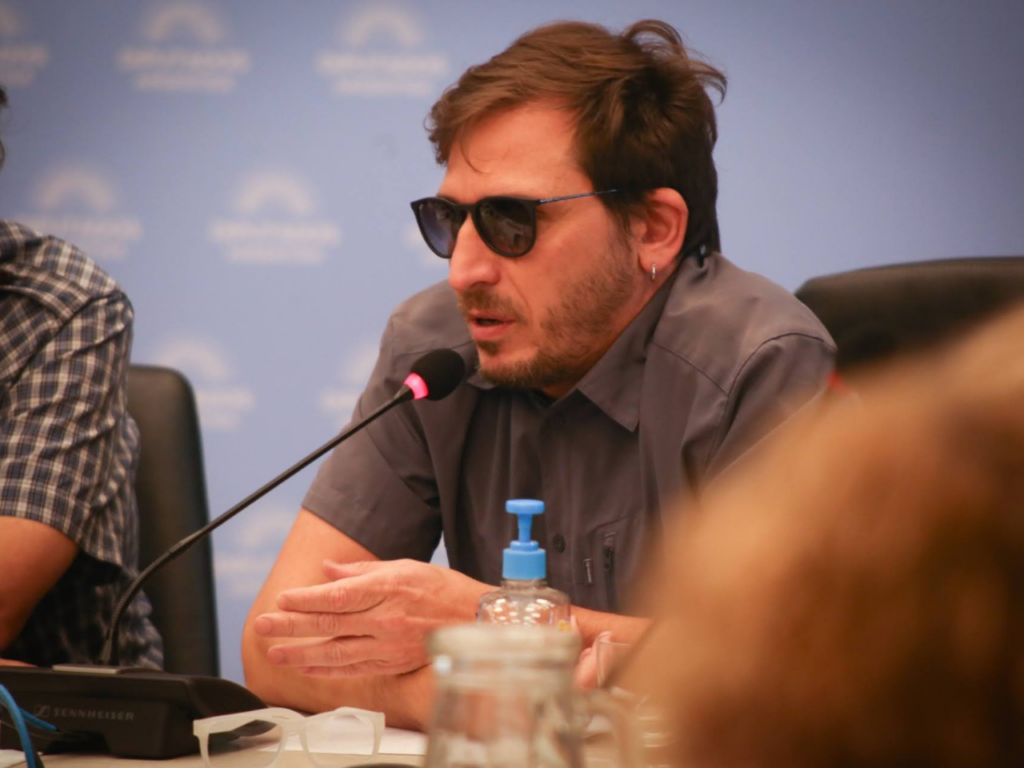Human rights lawyer and activist shot in the eye during protest against far-right agenda
I looked over at [the 15 police officers encircling us], and one of the officers aimed his gun directly at me. In the very next moment, I felt the impact of the rubber bullet on my eyes.
- 2 years ago
March 14, 2024

BUENOS AIRES, Argentina — With the rise of an ultra-right government and the erosion of rights in my country, we face turbulent times. Many organizations and individuals find themselves immersed in protest. I consider myself an activist, having supported leftist causes for over 20 years now. I attend every protest I can.
On February 1, 2024, I attended a peaceful protest outside the National Congress, and I paid the price with my sight. When the protest turned violent in what felt like an ambush, an officer shot me in the left eye with a rubber bullet, changing my life in an instant. While I accept the consequences of my activism, I do not take them lightly. As a lawyer and human rights defender, I will seek justice for what happened to me. Such actions cannot go unpunished.
Read more conflict stories at Orato World Media.
Left front activist watches apparent coordinated repression by police during protest
Recently, [a legislator in Argentine President Javier Milei’s coalition] José Luis Espert [backed the President’s suggested police crackdown on protests] when he tweeted three simple words on the topic: “Prison or bullet.” In doing so, he incited violence against the Left Front movement, some of whom are my clients. On February 1, 2024, I filed a complaint on behalf of current and former members of the Chamber of Deputies Myriam Bregman and Nicolás Del Caño.
As I worked through the filing that day, numerous far-right supporters amplified Espert’s incitement on social media, further targeting members of the Left Front. After work that day, I joined a leftist group heading to the National Congress to protest. Inside, deputies debated a law to deregulate several activities. We stood in strong opposition.
When I arrived at the National Congress, the repressive atmosphere felt palpable. Although I am accustomed to attending such events, something felt different this time. The night before, they arrested four women for simply singing the anthem. Right away, I noticed police removing a small group of protestors for no apparent reason.
The hostility from the security forces grew, seemingly part of a coordinated plan. Under a new protocol to deter protests, we were required to stay on the sidewalks. However, the Gendarmerie [Argentina’s national force of border guards], armed with shields, batons, and gas, forced us onto the street. The moment we stepped off the sidewalk, they unleashed severe cruelty.
They guided the protestors towards one of the squares in front of the Congress. As the protestors huddled together, I witnessed a full-scale operation. Hundreds of security force members equipped with water cannon trucks encircled us. Other brigades wearing blue jackets began singling out individuals for easy arrests. Then, suddenly, federal police on motorcycles swooped in. The intensification outside took the media focus off what was happening inside during the parliamentary proceedings.
Caught in the crossfire, human rights lawyer shot in the face with rubber bullets
I remember officers advancing on our group even when the demonstration remained peaceful. As the sun set and public lightening went dark, the protestors became disoriented, increasing their need to huddle together. Anyone who ventured outside the square alone became an easy target for arrest. I remained on high alert. As a human rights lawyer, I felt prepared to react and report any arrests or injuries.
Just when the tensions eased and we felt a sense of calm, a group of motorized federal police began provocatively circling us. They revved their engines, seemingly to intimidate us. Then, without any warning, they began firing rubber bullets into the crowded square full of protestors. The impact felt devastating.
Hundreds of us sought refuge behind bus shelters and light poles. I saw an increasing number of people bearing injuries from the rubber bullets, mostly on their legs and torso. Then, a group of about 15 motorcycles led by two officers turned toward the square. As I looked over at them, one of the officers aimed his gun directly at me. In the very next moment, I felt the impact of the rubber bullet on my eyes. Confusion set in and I struggled to find safety. I desperately looked for someone to help me escape.
A rush of adrenaline and the instinct to survive overshadowed the pain, driving me and others away from the relentless repression. Amidst the cries of the wounded, someone grabbed my hand and guided me forward. As we attempted to cross the street, shots rang out from the direction we were headed and hit the person who was helping me. We fell and sought cover behind a light post, joining others trying to dodge the bullets. The second the police shifted their focus, we seized the opportunity to escape.
Being shot during a protest will not deter activist from continuing the fight
I felt blood dripping down my face as I fled. Unable to open my eyes, I became consumed by the uncertainty of whether or not my eyeball remained intact. Unaware of the extent of my injury, I focused solely on making it to a care center to save my eyesight. In those seconds, the conversations happening inside Congress became irrelevant to me.
I quickly found myself immersed in a sea of medical tests and preliminary diagnoses, still uncertain if I would ever be able to see out of my left eye again. The very next day, I underwent surgery for the first time in my life. In the coming weeks, I will face continued interventions and the doctors have reserved their prognosis for now.
When things finally calmed down, a profound realization washed over me. [As I exercised my right to protest that night], my life changed forever. The first time I opened up my social media after the attack, hundreds of messages flooded my inbox. As an activist and lawyer, I often travel to different parts of Argentina to assist individuals who have been detained. Now, many of the people I helped offered me comfort and support. A wave of affection and solidarity washed over me in my time of need.
Today, I need assistance with almost everything. The recovery process remains slow, long, and complex. My left eye remains full of blood and I can see nothing. I use eye drops daily and keep the eye closed. I do not yet see myself as a disabled person and maintain hope my sight will return. Perhaps this situation is temporary. Despite the experience I endured [at the hands of the federal police of Argentina], they cannot diminish my desire to continue this important work. I will keep going, as I did before.



































































































































































































































































































































































































































































